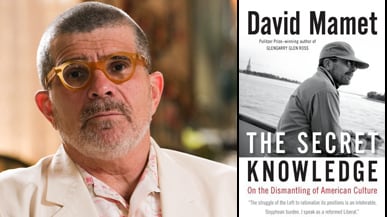
I was moved to read Mamet's self-account by a reader of Patriots who suggested that I was undergoing a similar transformation, only in the opposite direction.
Not quite. Mamet really does seem to have had a conversion experience. He has embraced ideological conservatism as a total intellectual system, as a new life creed:
I look back on my Liberal political beliefs with a sort of wonder—as another exercise in self-involvement—rewarding myself for some superiority I could not logically describe.
Such an experience is alien to me.
I was drawn to conservative politics as a young person because I wanted to understand how the world really worked. Why were there oil shortages? Why did prices rise and rise? Why had American cities turned so dangerous and violent? Why was American power in the world ebbing before challengers and enemies?
I was repelled from liberalism because I disliked sentimentality in politics. Politics is the business of collective solutions to collective problems, not an arena for the display of good intentions. And such sentimentality seemed to me the special province of liberalism as I knew it in the 1970s and 1980s.
Those remain my likes and dislikes to this day. I have had no conversion experience. But I have had a series of what might be called de-conversion experiences, as projects that I wished to work one by one failed to deliver the promised results—culminating of course in the grand disaster that struck in 2008.






